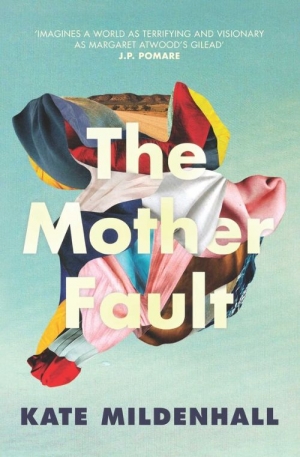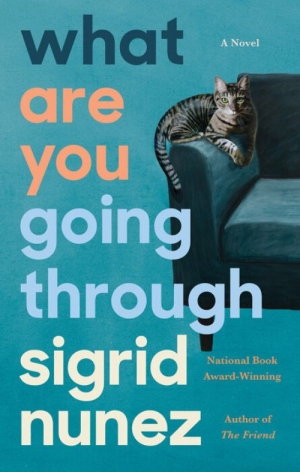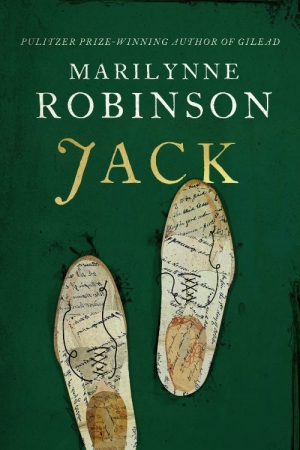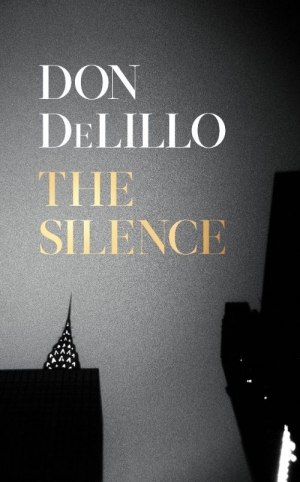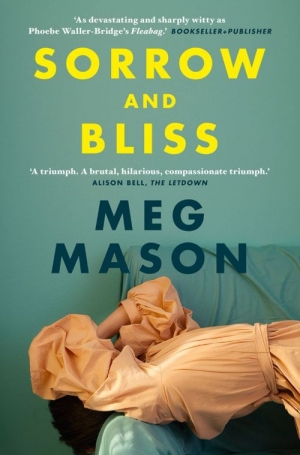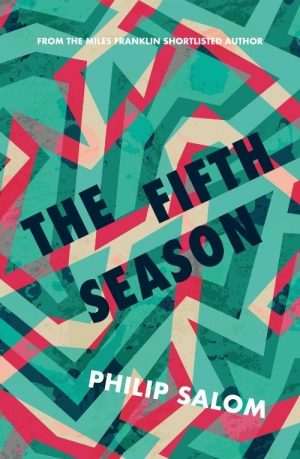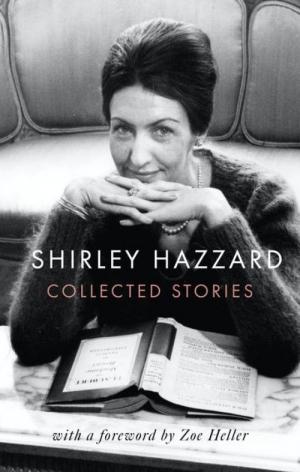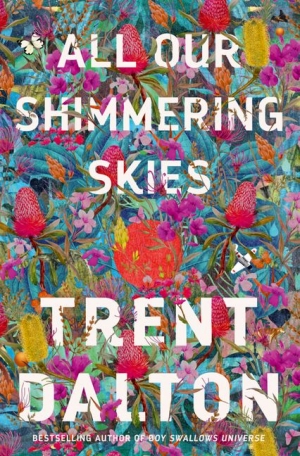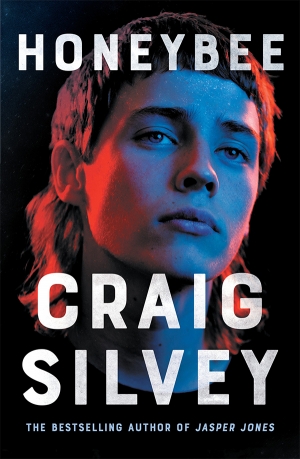Fiction
Kate Mildenhall’s confronting new novel, The Mother Fault, is set in an alarming near-future Australia. Climate change has left refugees ‘marking trails like new currents on the maps as they swarm to higher, cooler ground’. Sea levels have risen, species have died out, farmlands have been contaminated, and meat is a luxury. Unprecedented bushfires occur regularly; technology and surveillance are ubiquitous, with bulbous cameras hanging ‘like oddly uniform fruit bats from the streetlights’. The media is controlled, and Australian citizens are microchipped and monitored by a totalitarian government known as ‘the Department’. The ‘Dob in Disunity’ app offers ‘gamified’ rewards to informants (‘Even kids could join in the fun!’), while troublemakers can be relocated to ‘BestLife’ housing estates where the reality is far from the Instagram hashtag. Reflecting on the events that led to this, protagonist Mim notes that the world ‘shifted slowly, then so fast, while they watched but didn’t see. They weren’t stupid. Or even oppressed in the beginning.’
... (read more)Brenda Walker reviews 'What Are You Going Through: A novel' by Sigrid Nunez
In 1976, Sigrid Nunez moved into an apartment on Riverside Drive in New York with her then boyfriend, David Reiff, and his mother, Susan Sontag. Nunez is a person who cherishes solitude. In Sempre Susan, her tribute to Sontag, she describes the strain of living with extroverts when her dream, from her teenage years, had been: ‘A single room. A chair, a table, a bed. Windows on a garden. Music. Books. A cat to teach me how to be alone with dignity.’ Sontag never wanted to be alone. Nunez was drawn into constant dinners, movies, and mountainous correspondence interrupted by telephone calls and visits, often from Joseph Brodsky, the Russian poet, who sometimes meowed like a cat instead of saying hello. (Although Nunez liked him, Brodsky was clearly not the cat of her dreams.) Sontag, objecting to a routine interview, grumbled that ‘Beckett wouldn’t do it’, which became a private refrain for Nunez, oppressed by the relentless activity of the household and the pressure for her to join in.
... (read more)To read a novel by Marilynne Robinson is to step into a god-haunted world. Hers is a universe both recognisable and brilliant with strangeness, where glory and mystery abound, where revelation is never finished and souls are argued over with the greatest of gravity. At once mythic in scale and deeply attentive to the textures of this world, Robinson’s novels are full of people for whom notions of grace, redemption, and salvation are not abstractions but aspirations – people who, as Robinson once wrote of herself, look to Galilee for meaning.
... (read more)‘Literary talent,’ writes Martin Amis in his new ‘novel’, Inside Story, ‘has perhaps four or five ways of dying. Most writers simply become watery and subtly stale.’ Not so the eighty-three-year-old Don DeLillo, who has published seventeen novels over the last fifty years, all of them muscular, intelligent, prescient. In 1988, he told an interviewer from Rolling Stone, ‘I think fiction rescues history from its confusions.’
... (read more)For a protagonist that is self-professedly unlikeable, Martha commands attention – and is likeable. In Meg Mason’s tragicomedy Sorrow and Bliss, Martha navigates living with an undiagnosed mental illness. The novel solidifies Mason’s thematic preoccupations by revisiting those of her previous works: as in her memoir Say It Again in a Nice Voice (2012) and her first novel, You Be Mother (2017), the power of female relationships, loneliness, and the bleak humour of motherhood are apparent.
... (read more)Kerryn Goldsworthy reviews 'The Fifth Season' by Philip Salom
In Western culture’s calendar year, is there some hidden fifth season, and if there is, what is it? The main character of Philip Salom’s fifth novel, a writer called Jack, asks himself near the end of the book whether the fifth season might be ‘Time, which holds the seasons together’, or perhaps the fifth season is simply ‘the Unknown’. Jack is preoccupied with the lost: with those people whose bodies are found but never identified, or those who, suffering amnesia, can’t be identified, but who need ‘to find their proper location in the story. In the seasons. A lost person must be allowed other dimensions.’
... (read more)In 1819, sixty thousand people gathered in St Peter’s Field, Manchester, to protest for parliamentary reform. Industrialisation had transformed a city of skilled tradespeople into factory workers, tariffs on imported grain kept food prices high, and few were eligible to vote. Although the protest was peaceful, local magistrates sent in the Yeomen and the Hussars who killed approximately eleven people and injured more than four hundred.
... (read more)Brenda Niall reviews 'The Collected Stories of Shirley Hazzard' by Shirley Hazzard
When Shirley Hazzard was invited to give the 1984 Boyer Lectures, it was an astonishing break in tradition. Her twenty-three predecessors included only one woman, Dame Roma Mitchell, a supreme court justice who was later governor of South Australia. Except for architect and writer Robin Boyd, and poet and Bulletin editor Douglas Stewart, Hazzard was the only creative artist on the list. All her predecessors were well known for their public contributions to Australian life.
... (read more)Susan Wyndham reviews 'All Our Shimmering Skies' by Trent Dalton
The cover of All Our Shimmering Skies is crammed with surprises. Look closely among the Australian wildflowers and you’ll find black hearts, butterflies, lightning bolts, a shovel, a crocodile, a dingo, a fruit bat, a Japanese fighter plane, and a red rising sun. Trent Dalton has adopted a similar method in writing his second novel, which samples almost every genre you can think of, from war story to magic realism and Gothic horror to comedy. There are references to Romeo and Juliet and a nod to The Pilgrim’s Progress.
... (read more)Honeybee, Craig Silvey’s highly anticipated new novel, his first since Jasper Jones (2009), chronicles the coming of age of fourteen-year-old transgender narrator Sam Watson, who was assigned male at birth. This is a story of desperate loneliness and fear, of neglect, family violence, betrayal, and self-disgust. But it is also one of love and solidarity, a celebration of the kindness of strangers who become family and friends.
... (read more)
